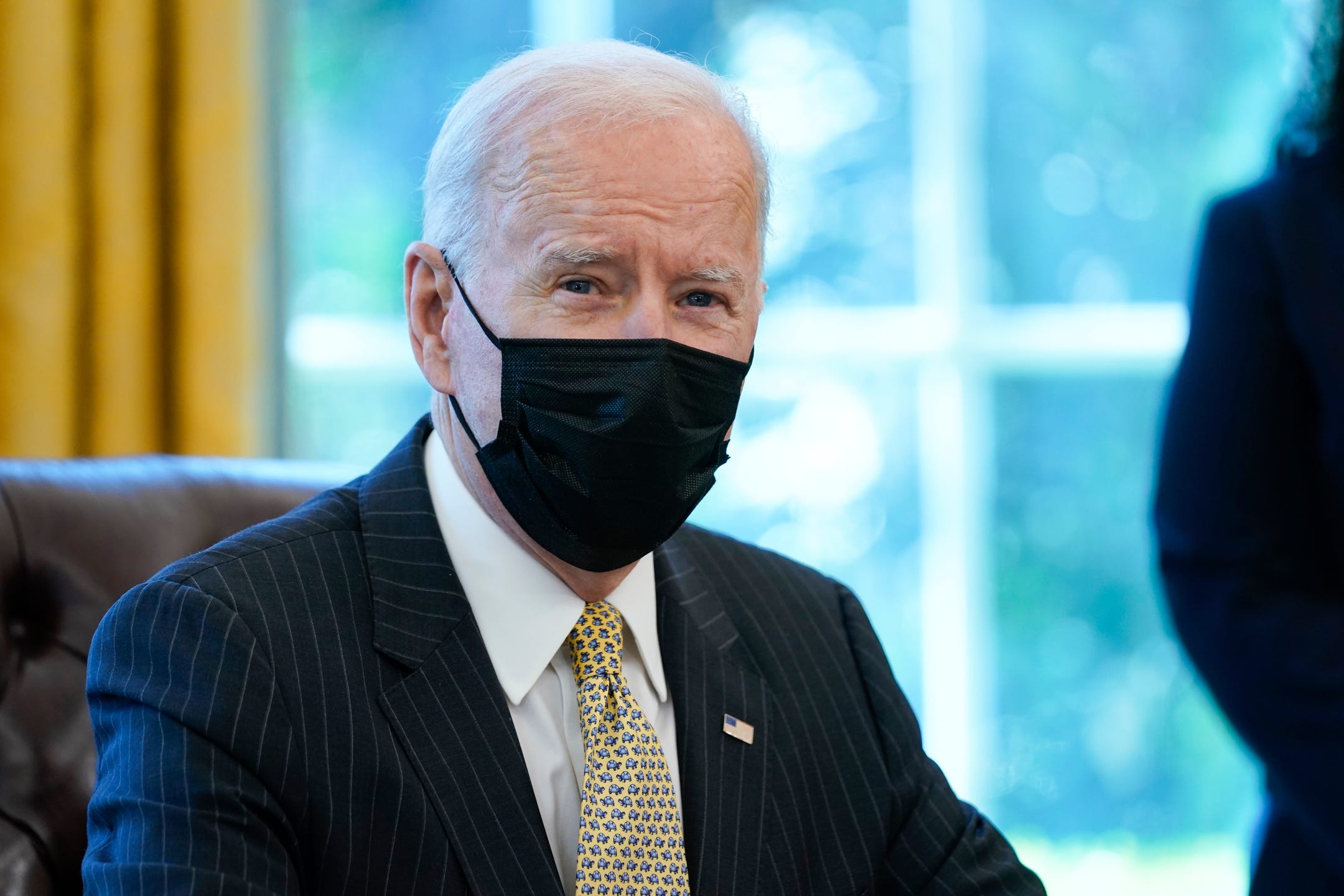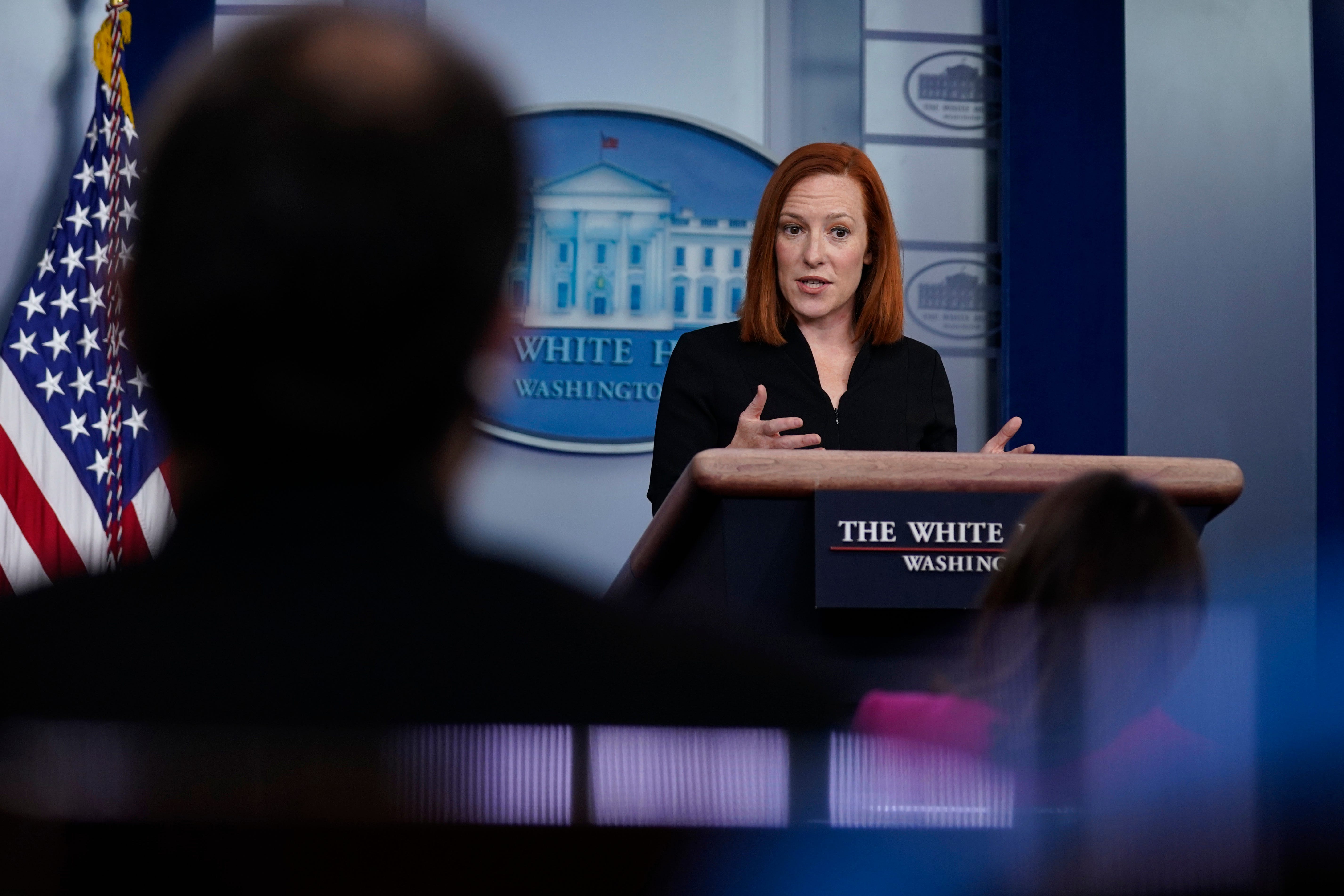
WASHINGTON – President Joe Biden on Wednesday will take to the lectern in Pittsburgh – a city known for steel, factories and the towering bridges crisscrossing its downtown – to pitch the second signature proposal in his young presidency, a massive infrastructure and jobs plan that would cost $2 trillion.
But before Biden even offered specifics of his aims to fix the nation's roads, bridges and railways, Republicans he'll need to work with in Congress panned it, claiming it goes too far beyond traditional infrastructure spending and comparing its climate aspects to the Green New Deal.
Republicans argue the package should be limited to transportation, broadband internet and other basics, not green energy like Biden has touted since he was a candidate. Biden doesn't want to just fix roads, Republicans warn, he wants to upend American life.
Biden's infrastructure plan: Biden to propose $2 trillion infrastructure, jobs plan funded by corporate tax hike
They've also balked at raising taxes – long a sticking point for Republicans to get behind big-ticket Democratic programs. To find bipartisan support, the president will have to convince skeptical Republicans to support an increase of the corporate tax rate to pay for infrastructure and a wide-range of other spending.
These dynamics foreshadow a possible repeat of Biden's first major legislative victory earlier this month, when he won approval of a $1.9 trillion COVID-19 relief package, the American Rescue Plan, without a single Republican supporter in Congress.
"What taxes are the Republicans who want infrastructure spending for?" said Matt Grossman, who heads the Institute for Public Policy and Social Research at Michigan State University. "I think the answer is not many. And if so, they won't be ones that Democrats are likely to support. So that, right off the top, limits the potential for bipartisanship pretty fundamentally."
Biden is set to unveil his long-discussed infrastructure plan in his Pittsburgh speech. His proposal – in addition to addressing roads, bridges, railways and broadband – will include spending on manufacturing, research and development and "the caregiving economy."

The White House has billed the proposal as a way to create "good-paying union jobs" and a "first step" toward economic recovery amid the coronavirus pandemic. A second proposal in Biden's "Build Back Better" agenda addressing health care, education and child care is expected in April.
'Is this what you envision with infrastructure?' Republicans ask
To build their case for the large infusion of domestic spending, the White House said the U.S. ranks 13th globally in infrastructure quality, down from fifth in 2002, and significantly lags rival superpower China in infrastructure spending. More than one-third of America's bridges need repairs and one in every five highways are in poor condition.
"We know that 80% or more of people in this country, Democrats and Republicans, support investing in infrastructure," White House press secretary Jen Psaki said.
Yet Republican lawmakers have spent recent days fine-tuning their attacks.
“We’re hearing the next few months might bring a so-called 'infrastructure' proposal that may actually be a Trojan horse for massive tax hikes and other job-killing left-wing policies," Senate Minority Leader Mitch McConnell, R-Ky., said from the Senate floor last week.
His office seized on recent comments from Rep. Alexandria Ocasio-Cortez, D-N.Y., likening the proposal to the Green New Deal, a sweeping environmental effort pushed by Democrats to fight climate change. "Sold as an infrastructure plan," warned Scott Sloofman, a top McConnell aide, it "actually intends to reshape the U.S. economy and other parts of American life."

Sen. Shelley Moore Capito, R.-W.Va., the leading Republican on the Senate's Environment and Public Works Committee, said she's "very disappointed" the plan could include social programs in addition to infrastructure.
"They're terming it 'social infrastructure.' Never heard that before," Capito said, predicting a hard legislative fight. "I think we need to talk to the American people and say, 'Is this what you envision with infrastructure? Are these job creators? Are we re-engineering our own social fabric here with a 50-vote majority?'"
Both parties back a 'big bold vision,' Buttigieg insists
House Republicans warned Biden's transportation secretary, Pete Buttigieg, last week that any plan that strays from core transportation priorities to one that tackles climate change and social justice won't get GOP support.
"I don't think the bill can grow into a multi-trillion-dollar catch-all," said Missouri Rep. Sam Graves, the top Republican on the House Transportation & Infrastructure Committee. "A transportation bill needs to be a transportation bill, not a Green New Deal. It needs to be about roads and bridges."
Former President Donald Trump repeatedly promised an infrastructure package but never delivered one.
Democrats could choose to pass the infrastructure legislation in the Senate through budget reconciliation – just like they did Biden's COVID-19 relief bill known as the American Rescue Plan – which would require just a simple majority in the evenly split chamber and therefore no Republican votes.

More: A gas tax? A mileage tax? Biden wary of user fees to pay for roads, bridges and highways
In an interview Monday on CNN, Buttigieg said he think there's "a tremendous opportunity now to have bipartisan support for a big, bold vision of infrastructure," arguing Americans "don't need a lot of selling" on the issue. He also defended the inclusion of green investments in the infrastructure package.
"You can't separate the climate part from this vision," he said, "because every road we fix, every bridge we build, we can either do it in a way that's better for the climate or worse for the climate. Why wouldn't we want to be creating these jobs in a way that's better for the climate?"
Buttigieg said he thinks the administration can get Republican votes on infrastructure in Congress, adding "we're going to work with them to try shape it in a way that earns as much support as possible."
"At the the same time," he said, "the American people can't wait."
To pay for the sweeping package, Biden wants to make large corporations pay more taxes. According to an administration official, he will propose increasing the corporate tax rate to 28% – resetting to the its level before passage of President Donald Trump's tax cuts in 2017 – and overhauling how the U.S. taxes multinational corporations by increasing the minimum tax on U.S. corporations to 21%.
The White House this week eliminated user fees, such as an increase to the gas tax or road tax, to pay for the infrastructure plan.
"People might have different ideas about how to pay for it," Psaki said. "We're open to hearing them. So hopefully people will bring forward ideas."
With public support, can infrastructure get bipartisanship?
A poll this month from The Hill-HarrisX found 54% of American voters believe an infrastructure package should be a priority right now for the federal government, compared to 46% who said other issues should. Sixty percent of Democrats, 54% of independents and 46% of Republicans agreed infrastructure should be prioritized.
"To have a bill like this that can generate jobs, help improve transportation, and infrastructure in general is a win-win all around," said David Paleologos, director of the Suffolk University Political Research Center. "Paying for it, obviously, is going to be the sticking point for Republicans."
Green energy investments are also popular among the public, according to Grossman. And while polls generally find opposition to raising the federal tax on gas to pay for infrastructure, the public gives higher marks to raising taxes for corporations and higher-income individuals
"In that sense, this developing bill does have the potential to at least start out with bipartisan support in the public," Grossman said.
Such a scenario would be also reflect the dynamics of Biden's COVID-19 relief bill, which multiple polls found was backed by more than 70% of Americans.
But as Biden learned, that doesn't mean Republicans in Congress will jump on board.
Sen. Lindsey Graham, R-S.C., called an infrastructure package the “the best chance” for Republicans and Democrats to do something together, saying “Everybody needs roads and bridges and ports.”
But he added: “We just want to make sure it’s related to infrastructure.”
Reach Joey Garrison on Twitter @joeygarrison.